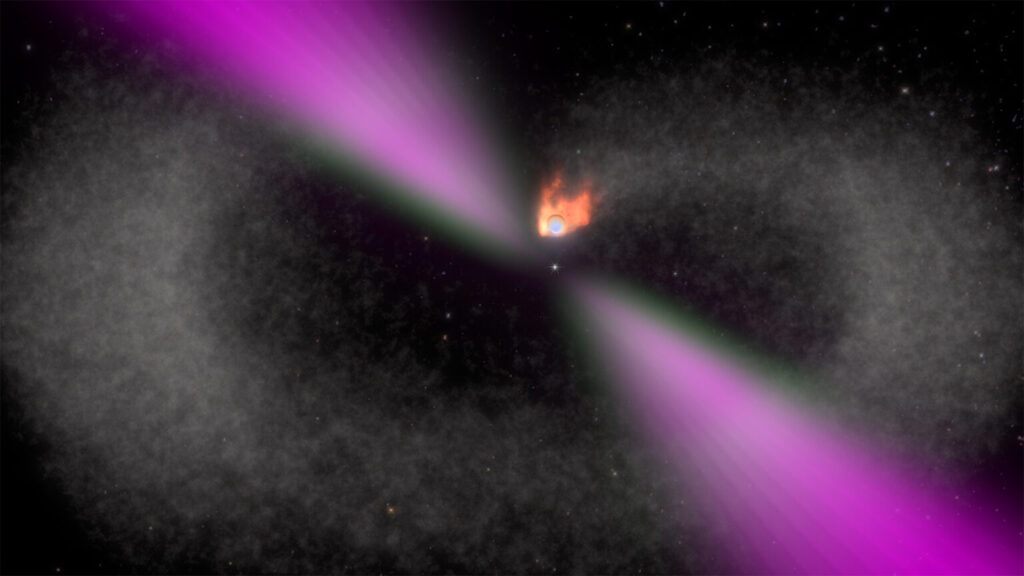The flashing of a nearby star drew the attention of a team of astronomers, who discovered that it is part of a rare and mysterious system. As they report in a paper published May 4 in Nature, the stellar oddity appears to be a “black widow binary” — a type of system consisting of a rapidly spinning neutron star, or pulsar, that is circling and slowly consuming a smaller companion star, as its arachnid namesake does to its mate.
The team, led by co-author Kevin Burdge, a postdoctoral researcher at the Massachusetts Institute of Technology, found the black widow binary utilizing data from the Zwicky Transient Facility, a California-based observatory that takes wide-field images of the night sky.
“This discovery highlights the potential of large time-domain surveys like ZTF to find rare astrophysical objects,” said co-author Eric Bellm, a research assistant professor of astronomy at the University of Washington, fellow at the UW’s DiRAC Institute and scientist with both the ZTF and the Chile-based Vera C. Rubin Observatory.
Read full UW Press Release here.
